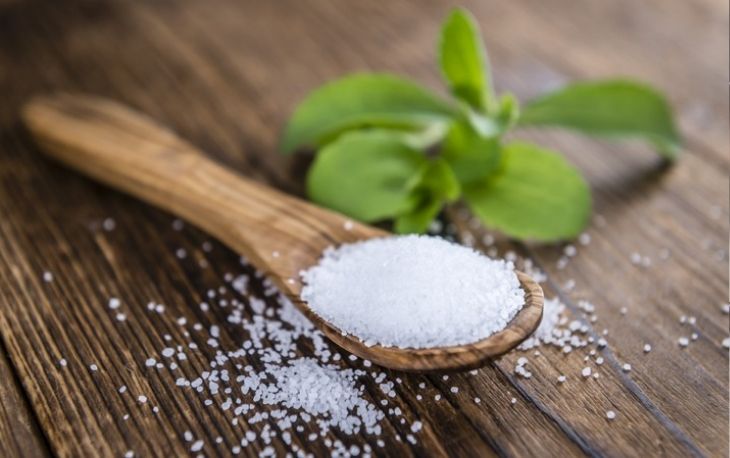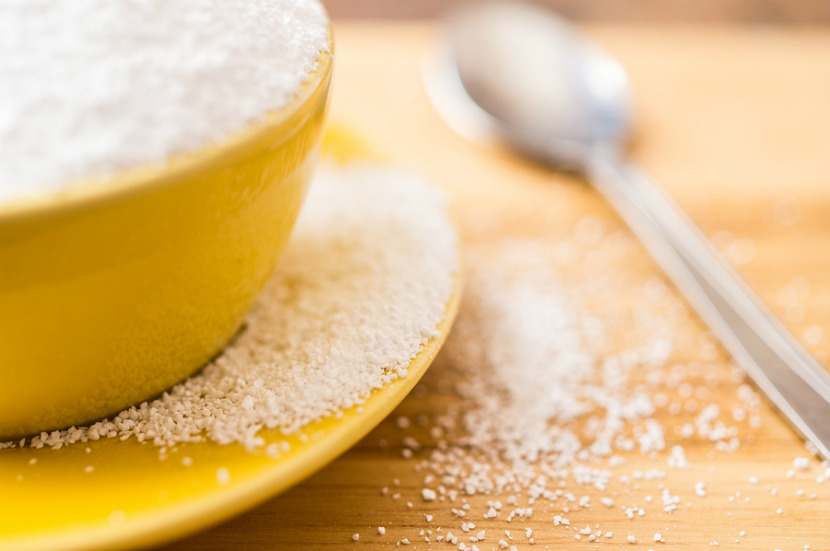Pregnancy comes with a lot of do’s and don’ts when it comes to your diet. Between the cultural nutritional taboos and all the concern about unpasteurised dairy and shellfish, eating becomes a bit of a minefield.
And then throw confusing topic of artificial sweeteners in the mix. Artificial sweeteners are lower calories substitutes for sugar, but it’s important to note that anything with the word “artificial” attached to it is made with ingredients of a chemical nature.
Artificial sweeteners gained popularity primarily because of their lower calorie count. Here was a substance that was sweet, but didn’t have the cons of regular sugar made from sugar cane and sugar beets like weight gain.

There are four main artificial sweeteners prevalent in the food and beverage market: aspartame, cyclamate, saccharin and sucralose.
These sweeteners are commonly found in products that are labelled ‘light’, ‘diet’ or ‘reduced sugar’. This means that everything from your soft drinks, juice and baked goods to chocolate, yoghurt and ice cream has some form of these four sweeteners if it’s labelled as having a lower caloric count.
Are artificial sweeteners safe?
The Food And Drug Administration (FDA) is an American government agency that reviews the results of animal, clinical and laboratory testing performed by manufacturers. It then grants approval for a product if the benefits outweigh the known risks. The FDA has approved these six artificial sweeteners safe for consumption: aspartame, acesulfame K, advantame, saccharin, sucralose and neotame.
The bottom line is yes; they are safe, but as with everything, should be consumed in moderation. And if you have an underlying health condition, check with a medical expert.
Are artificial sweeteners safe for pregnant women?

Although experts do agree that more studies should be done to ascertain the in-utero effects these sweeteners may have, the general consensus is they are safe to be consumed in moderate amounts. This means adhering to the daily intake as prescribed by regulatory agencies, nutritional experts and medical practitioners.
It is important to note that aspartame should not be consumed by anyone with a metabolic disorder called PKU (phenylketonuria), a rare condition that affects the liver. This also refers to pregnant women with high levels of phenylalanine (an amino acid) in their blood. As this is a component of aspartame, the metabolising process can be hindered.
Another artificial sweetener to be aware of when pregnant is saccharin, which while being approved for consumption, did have bad press when it was linked with an increased risk of bladder cancer.
This has been dismissed by research conducted by the National Toxicology Programme, which is run by the US Department of Health and Human Services. Studies have shown that this sweetener may cross the placenta so for peace of mind, ask your doctor or just avoid it while pregnant.
Natural sweetener is best

Being pregnant is a challenge and an incredible accomplishment both mentally and physically. Keep it simple and natural, and veer away from anything artificial as much as you can. The upsurge in clean and more plant-based eating has led to many healthier natural options, even for sweeteners.
Sugar has a bad rap due to being over-consumed, but raw cane sugar and coconut sugar are examples of natural sweeteners that are fine if consumed moderately. Honey is also another good option. At lastly, you’re pregnant! You’re literally making a human life inside you! So if you want a doughnut/hot chocolate/soft drink – go for it! Just don’t have too much and look out for healthy sugar craving alternatives.
This article has been republished with permission from PurelyB
References: